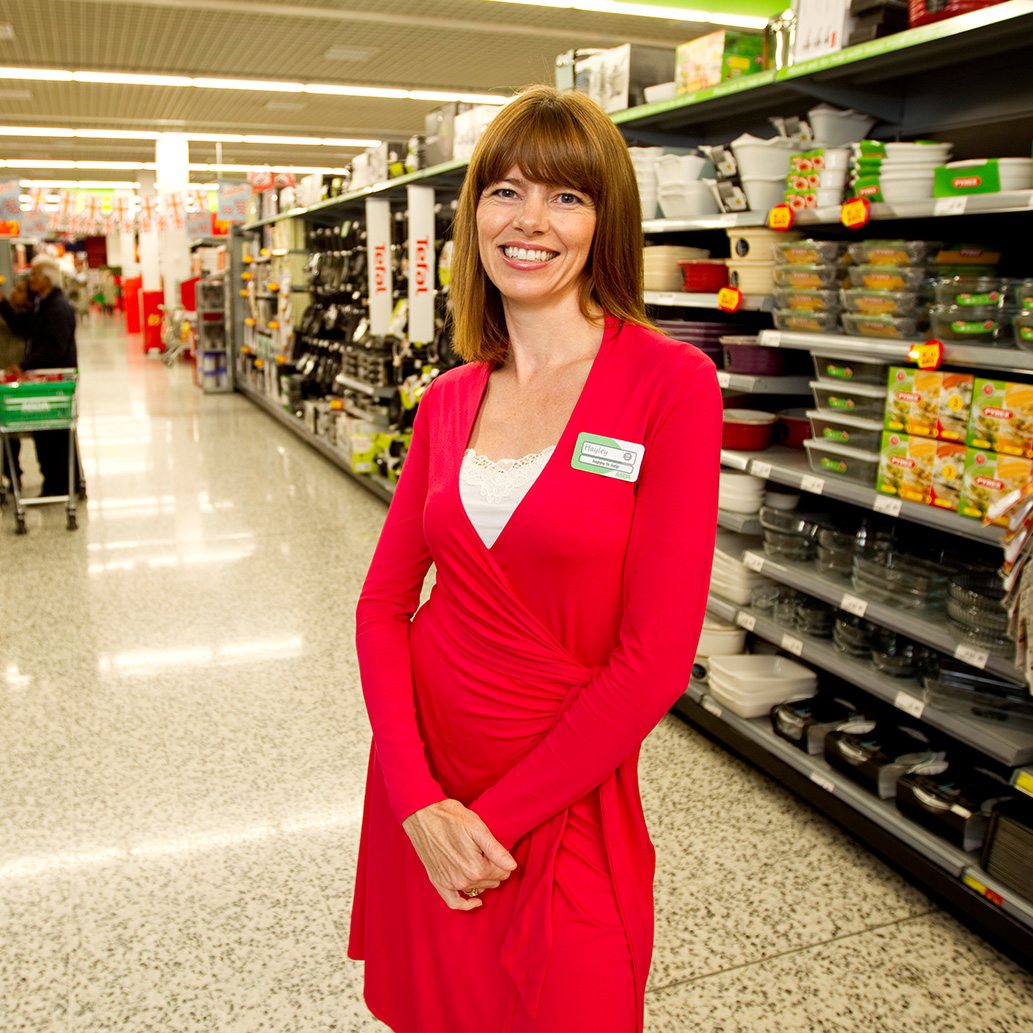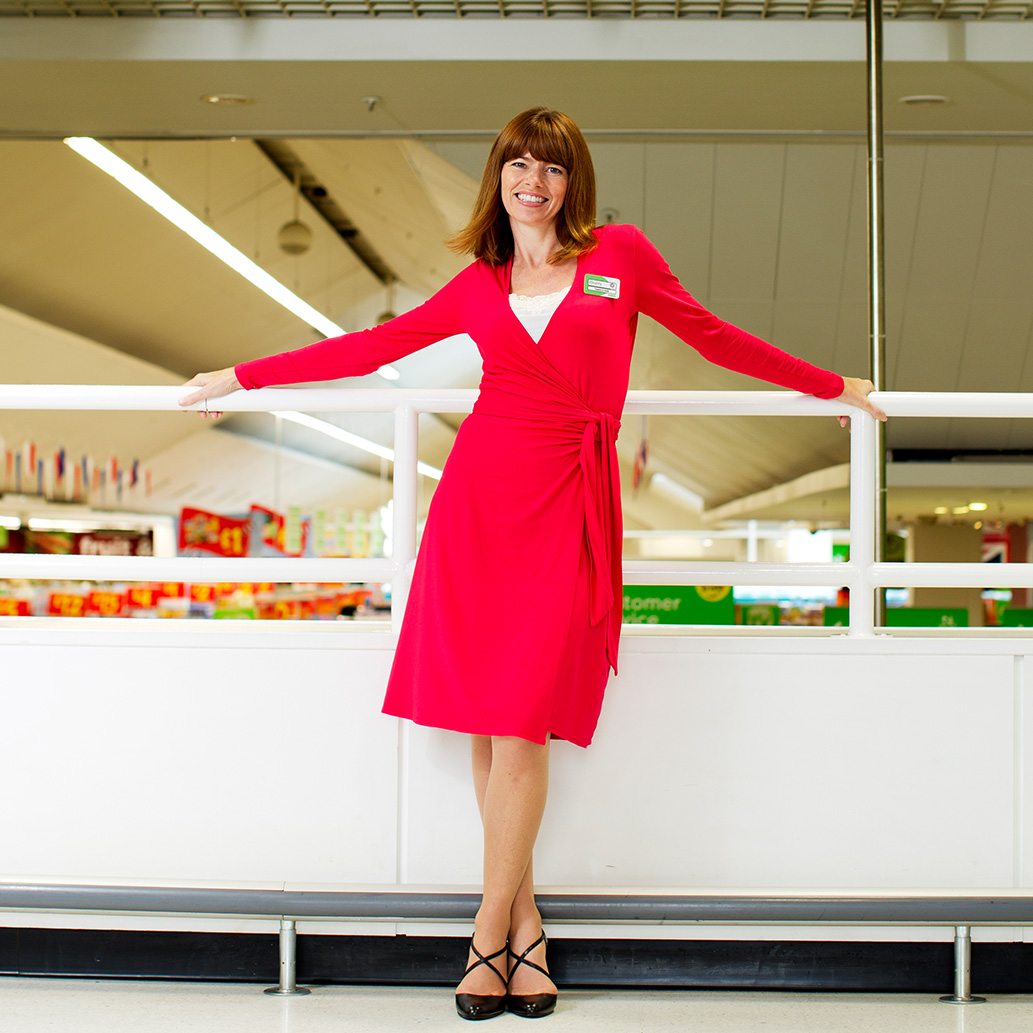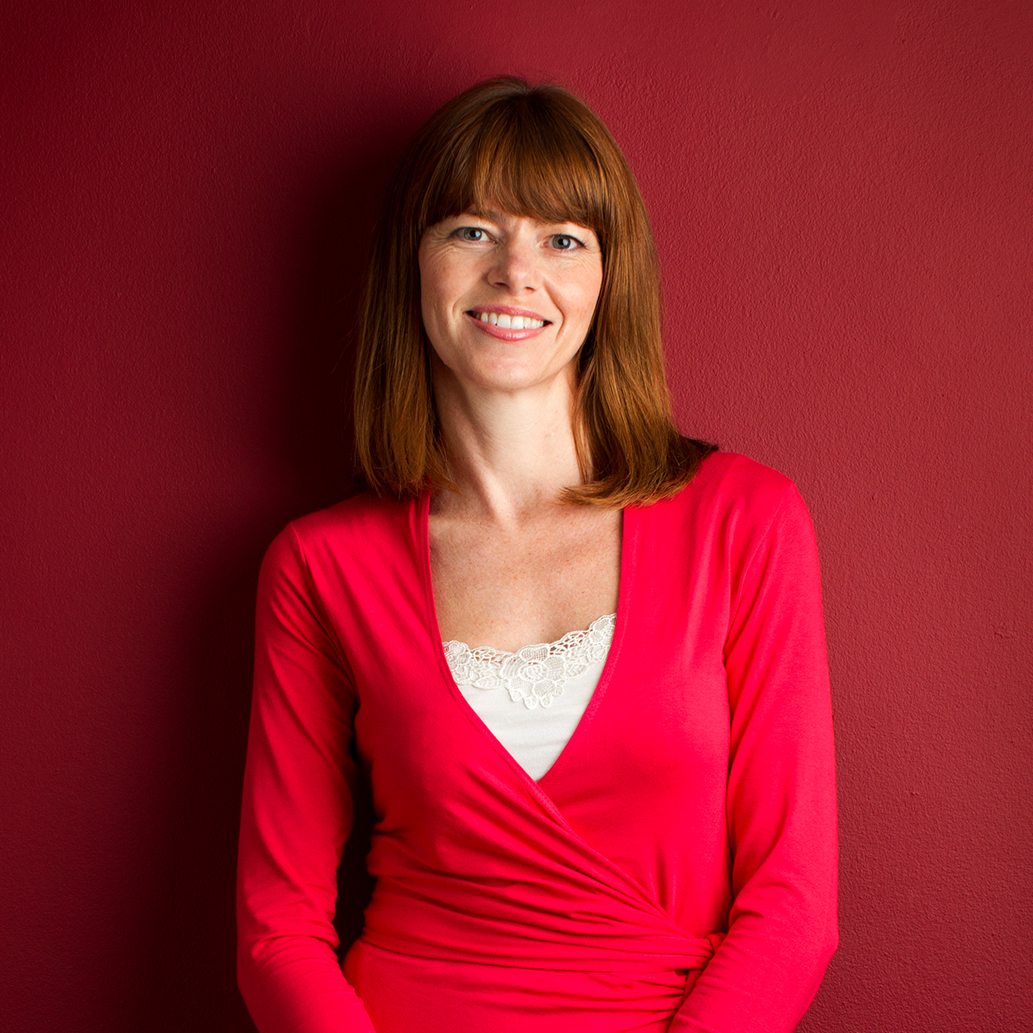Hayley tell us about your early career and why you decided on HR.
Like most people, while I was thinking about going to university, I needed work and money and the nearest place was my local supermarket, which was Tesco. I worked part time and there was lots of overtime, and I did a bit of everything; stacking shelves, on the tills, gaining experience in how the various departments like meat and bakery worked and generally had fun learning a lot about how shops run. We had a new store opening nearby and I was asked to join the team to help set up the new store. I was naturally curious, which led me towards HR via roles in payroll, training and finally becoming a Personnel Manager. Through the Tesco management training, I saw the link between good management and better performance and I fell in love with HR and began to understand what great leadership could achieve.
I became part of a senior team managing about 300 members of staff, and worked my way up to bigger stores and then to head office. My passion for learning got me involved in NVQs, this experience really spurred me on – I could see how high quality training made a difference to peoples’ capabilities, confidence and ambitions. This was a compelling double-whammy for me, with people doing better than they thought they could and the business getting the best from them as a result. This is what I wanted to do! Retail isn’t often seen as a sector that supports personal training, but I know differently and saw how the role of HR can link aspiration to reality and business performance. I think my own learning on the shop floor is proof of that and has fundamentally influenced the way I view the purpose of HR. After developing my experience further by working in resourcing and what was called ‘manpower planning’ at the time, working out the forecast of how many people were needed to manage the ambitious plans and how we could satisfy this need ahead of the growth curve.
It was at this point in Tesco’s phenomenal growth that I first became involved in organisation design. Philip Clarke, who is now the CEO of Tesco, came into the section I was working in and brought a consultancy for organisation design such as; structures, looking at how we worked, and designing jobs and training to make the business successful and help people progress. I was in the consultancy team, learning their methods, and it gave me so much, experience and developed skills that I have adopted time and time again. I did a Master’s degree in HR at Middlesex University, building my own skills, and I then came out of HR and took up a role as Prioritisation Manager, planning work and capacity. I worked closely with the IT Director, building up the IT infrastructure, and this gave me another useful and insightful part of my learning. I then took all of this knowledge and experience to become Head of Learning and Development, probably one of my favourite jobs, as it brought together all the things I’m passionate about.

And there was a lot happening in the supermarket sector, the big players were having to respond to Tesco’s expansion.
Yes, then Wal-Mart bought Asda, and I was asked to come out of my job to facilitate a project team, to specifically find out what this could mean for Tesco. Teams went to the US to look at what we might expect. But the Wal-Mart impact on Asda in the UK wasn’t as pronounced as expected, and it wasn’t immediately evident what it might mean in the long term. I then left Tesco and joined BAA, working in airport retailing, but again focusing on training and customer service as Head of Learning and Development, which gave me my first introduction and interest in e-learning. But I hadn’t lost my connections with Tesco, and a former boss contacted me about a position. I re-joined and enjoyed a further ten years there, first in a generalist role, leading HR in hypermarkets, during a period of rapid growth. During my three years in this position, the trading format quadrupled in size to over a hundred stores, offering everything under one roof making them true destination stores for customers and changing the face of UK supermarkets.

So you’re talking pharmacies, opticians and banking for example, give us an idea of how you take the HR change plan off the board and bring it to life in-store?
We needed a blueprint so we started with stores of excellence, so that store managers could go and see and experience what it was like to manage the new look stores, which were made up of various departments, to gain confidence and to recognise what good looks like in these newer areas and how to lead such a large and diverse team. Some of these stores employed almost 1000 colleagues, so it was a significantly different way of managing. For some it was a revelation, for others there was a fear, or sense of loss of control, but this bridging experience programme really helped with that transition. In fact, many went on to become Directors and like them, this experience enticed me away from HR again to become a Store Director. I ran 22 Hypermarkets across London and down to the South Coast. My team of store managers taught me so much and we proved that great results are about honest and consistent leadership. After this I moved on to spend four years as the UK and Republic of Ireland Operations People Director, sat on the Board of Tesco Ireland and had responsibilities for 280,000 colleagues.

In football terms, your move to Asda could be likened to a Manchester United star player moving to Manchester City.
Well, lots of things were changing with the HR structure and I couldn’t clearly see my next role, I thought if I stayed through this next leadership transition I’d be there for another ten years, probably moving abroad. It was time for a change. I had respected and admired Asda for a long time, I could see the opportunities and I knew there were loads I could learn from the business, but equally I felt there was a great deal I could share too. I felt very well armed with my experience and retail capabilities. I knew Asda had a great reputation for excellent customer service and colleague care, but I wanted to better understand the culture and empowering leadership style. Because Tesco started in the UK, the team based in the UK acted as a hub, exporting ways of working and training to each new market as Tesco expanded into Europe, Asia and the US. For me being in Asda, I’m outside of the US Wal-Mart Group Teams, so I am seeing things from the other side. What I love about Asda is that there isn’t a forced blueprint there is lots of leverage and flexibility which I’m really enjoying.
So did this require a different approach and mindset?
I had to take a view that some of the things I had learnt and experienced at Tesco just would not apply. The businesses are different, Tesco has more stores of varying sizes in the UK, and has been successfully established with a well thought out way of organising work; so many stores could be applied to a specific blueprint. There is a large element of that in Asda, of course, but it isn’t as completely prescribed. There’s more room for innovation and local trading decisions and store managers owning the decisions – which they love. It leads to a real sense of being part of the local community, to ensure each store is right and responding to its local customers. This gives each and every store its own personality in offering bespoke customer service. When I first joined, I thought the best experience I could get was to don my green fleece and go and work in store in Stevenage, rather than immediately embedding myself in the head office. Asda has stores of learning, and so I spent time on the tills, in the photo centre and worked on shelf capacities, ate in the canteens, sat in briefings and listened to colleagues. It was really useful and it helped me understand what was really happening, so when I got to the home office and met my team, it gave me real insight into the heart of the business, the culture, the big scale stuff, but also the detail, and this helped me to formulate the forward plan.
Supermarkets are all about having the lowest prices, how does that impact on the operation?
Yes Asda is dedicated to lowering prices and remaining Britain’s Favourite Supermarket, but HR is right at the heart of that strategy too, because you have to balance optimised and efficient resources to achieve these lower prices and still delight customers through caring service. We are recognised as the lowest priced supermarket and the Asda Price Guarantee proves our confidence and commitment to remaining the best choice for customers. At Asda we are constantly striving for productivity, engaging colleagues to help find efficient ways of operating the business, using training, technology and global leverage to enable us to continue to provide even lower prices and even better service. Colleagues care about this and customers are the key, at Asda we hire for attitude and train for skill. UK retailing is very competitive so our job is to maintain our focus on our customers, and that’s all about consistency of delivery and ensuring customers aren’t playing roulette when they shop. A couple of weeks ago I attended the Big Asda Anniversary which celebrates our long serving colleagues. I spent the afternoon with 1,000 colleagues who had accumulated almost 30,000 years’ service between them, and there knowledge and passion for our business was really inspiring.
There’s a wide variety of specialities in-store these days, how do you provide multi- departmental training and development?
Our training has to be, and is, bespoke across departments. New colleagues, and those moving between departments, complete intensive training programmes, which are all currently being accredited. We also have regional teams in specialist areas to continually train and quality-assure our craft skill areas, as well as mystery shoppers who score their experiences of shopping in our stores. This data goes into helping us maintain and improve quality and service standards. In truth, this training focuses on building confidence so colleagues become experts in their roles and can concentrate on and enjoy chatting with their customers. The wide range of accredited training offered in Asda is an example that retail provides diverse career opportunities that are inclusive and available to all.
Does it frustrate you that retail has such a low profile in terms of career potential?
Not so much frustrate, but it does surprise me! I think organisations like Asda are important on so many levels; a hub of the community, but also a major employer, and, as I said, full of potential opportunities, whether that is school leavers and graduates, or people looking for part-time and flexible work. I truly believe that the link is there and organisations like us are really innovating and working hard to bring people in on all levels and encouraging them to realise their potential. Perhaps there could be even closer links with schools and further education, to strengthen that message and dispel any negativity about career opportunities in retail. I think I’m a good example of what can be achieved, and role models are compelling, take for example our CEO, Andy Clarke, who left school at 16, worked his way through the industry, and he is proof that if you’re willing to work and be committed, anything is possible. With that in mind, we have designed career programmes to welcome people into Asda at whatever level, including our own Retail Honours Degree. Considering the raised cost of attending university, we are anticipating a lot of young talent will be attracted by this excellent training route and getting paid as you learn is a pretty compelling alternative to emerging from University with a big debt.
With such a diverse workforce, do you prescribe a formula for optimising resources in the supermarket?
The formula is not having a prescribed formula. The best teams are those that are truly diverse; gender, ethnicity, age and disability. We have an amazing ethic about caring for customers and colleagues, it’s about attitude, commitment and how you treat fellow colleagues. When you experience this sort of working environment, it’s so much more than being a shelf stacker or a till worker. It’s a hub for people, who care and support each other, and those ethics cascade down from the very top.
How do you see the next few years for retail and how will it continue to impact on our lives?
I think this is a significant period of change, and the impacts are many and varied, in retail, the high street, socially and environmentally. Key considerations are, of course, shopping online, and mobile devices are taking this to a new platform which is an important format for Asda. Shopping whenever and wherever and then choosing to collect later, or home delivery, suits how more and more of us prefer to shop. The other big change is globalisation; learning to trade in emerging markets like China and India, and competing for the best talent around the world. You can’t look back at past successes, you’ve got to follow the customer, respond and stay ahead of their needs, but not too far ahead. Personally I believe price and convenience will continue to be important but I also feel there may be a re-surgence towards more traditional service. I go back to the importance of community of what a store can provide as a place to purchase, but much more than that. I think friendly and knowledgeable colleagues who customers know might become more of a priority again. We are at a time where trust is hugely important – doing what you say you are going to do – that’s very much at the heart of how Asda operates, which resonates with me.
And it’s trust and responsibility that are hugely important, especially in light of recent events where trust has been seriously eroded.
Part of our responsibility is to understand the role we play in society and how we can positively make a difference. It’s not about being paternal, but about navigating a responsible path, total transparency in business is essential, but at the heart of it is being real. I remember when I first joined Asda, at the ‘Best Welcome’ meeting, part of the induction programme which Andy Clarke attends personally to greet all new managers as they begin their management careers, he began to explain the purpose of Asda to save customers money every day. He went on to say that if we’ve done a good enough job, then perhaps our customers will have enough money left at the end of the week to go swimming. I was expecting him to talk about encouraging them to trade up and spend more, but he didn’t. It was obviously heartfelt and really grounded.
And what is next, in terms of keeping up with change, staying competitive and keeping the business plan facing the right direction?
More listening and learning, you’d be amazed just how many solutions and ideas come from our colleagues. They often know best as they are closest to the customer. Of course, being part of Wal-Mart gives me access to shared learning from the 2.2 million associates working together worldwide, which helps! In Asda we have a clear People Plan for the next five years which focuses on talent and agility, so we remain open and ready for opportunities. Above all though, colleague engagement is crucial to our continued success, ensuring every colleague is cared for and treated with genuine fairness. I know this will keep me busy, but I’m proud of the difference we’re making already, in big ways, and in what I call TNTs – Tiny Noticeable Things. They all add up to something really exciting!










